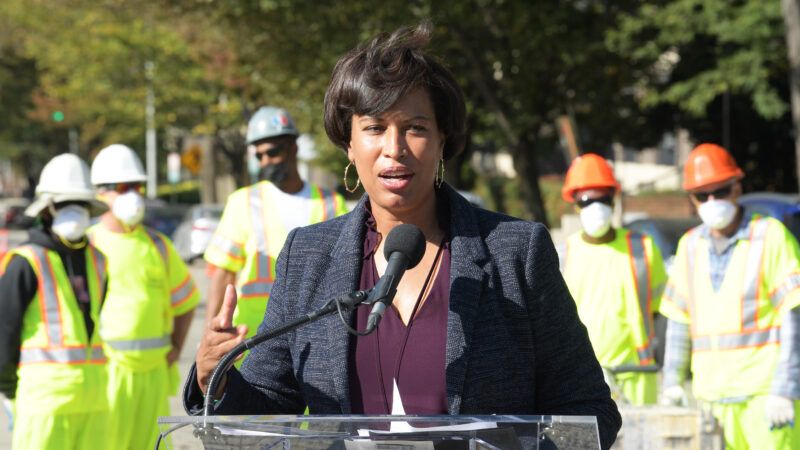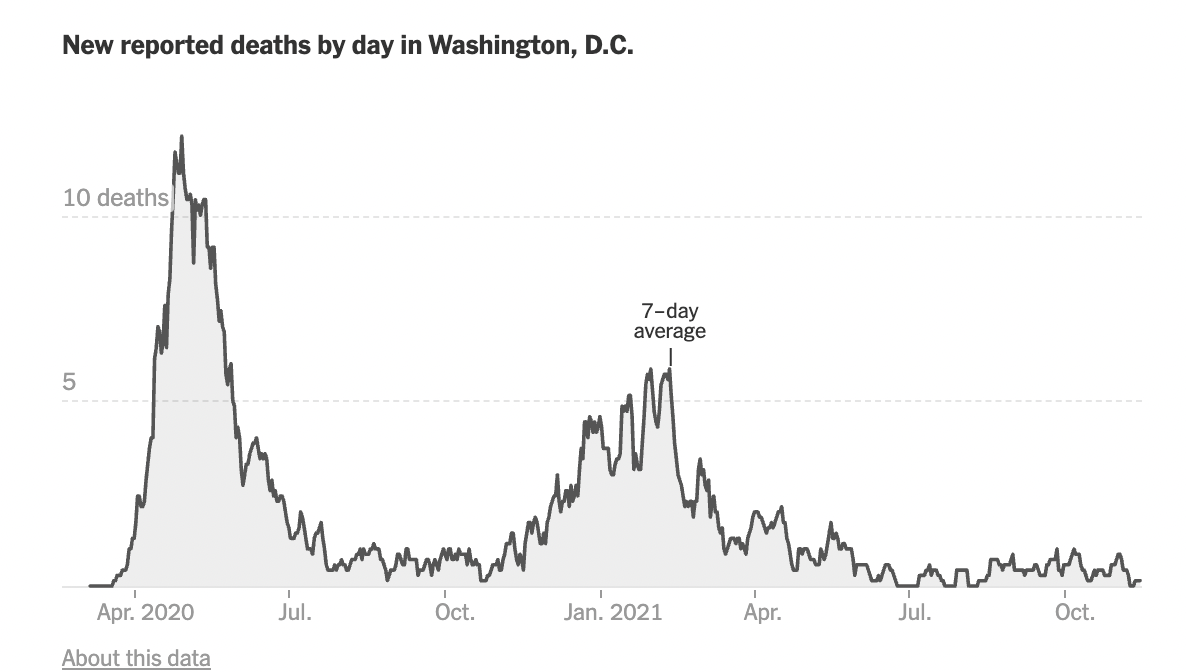Washington Mayor Muriel Bowser Will Finally Relax D.C.'s Stubborn Mask Mandate
Unlike in neighboring counties, D.C.'s mandate was never tied to specific metrics.

Washington, D.C. Mayor Muriel Bowser will finally relax the city's mask mandate, she announced on Tuesday.
On Monday, November 22, many indoor spaces will once again be allowed to forgo masks for customers, visitors, employees, and residents. Notable exceptions include public schools, public transportation, and government buildings.
Here are the details of where masks will continue to be required in D.C. Also: businesses will still be able to set their own rules on indoor masking. pic.twitter.com/agM5MJEYtn
— Martin Austermühle (@maustermuhle) November 16, 2021
"We are encouraged by the numbers that have opted into vaccination now, some of them encouraged by mandates," said Bowser, according to The Washington Post. "There may even be an increase in cases…but what we haven't seen is an increase in hospitalizations and deaths. That is the promise of vaccination."
Bowser previously rescinded the mask mandate, then brought it back in July when COVID-19 cases began to increase due to the delta variant taking hold. Unlike the actions of local officials in nearby counties, including in Montgomery County, Maryland, who linked the mandate to a certain case threshold, Bowser never gave any indication what metrics would be used to determine when to relax the mandate. And while the delta wave did cause an increase in COVID-19 cases in Washington, it had no effect whatsoever on D.C.'s death rate. The city's seven-day death average has hovered at one or below the entire time that delta has been a serious issue. (It was last above one on May 24, 2021.)

It would be hard to argue that the mask mandate was what kept delta deaths at bay, since all those masks failed to prevent cases from increasing. Widespread vaccination—which dramatically reduces severe disease and death—is the public health initiative that's working well, not the mask mandate.
Yet Bowser's administration leaned hard on mask mandates as a pandemic prevention tool, even prioritizing them over vaccination in some curious cases. When D.C. gyms petitioned the city government to allow them to require their customers to be vaccinated rather than masked, for example, city health officials said no.
Bowser's decision to keep the mask mandate in place for schools is a perfect example of the government's incoherent thinking about COVID-19 risks. While many school-aged children remain unvaccinated, they are at very low risk of a negative coronavirus health outcome—whether they are vaccinated or not. Elderly Americans who are vaccinated have much more to fear from COVID-19 than kids do, so it makes little sense to link the withdrawal of mask mandates to the degree of vaccination among the kinds of people who congregate in a given location.
It is long past time to accept that COVID-19 is endemic and that there will always be some level of risk associated with it. People can drastically reduce their risk by getting vaccinated, getting booster shots, or even practicing greater caution if they so choose. It is not the government's responsibility to assign the correct level of risk to each individual American, and local officials like Bowser should not get to reimpose mask mandates just because they feel like it.


Show Comments (45)